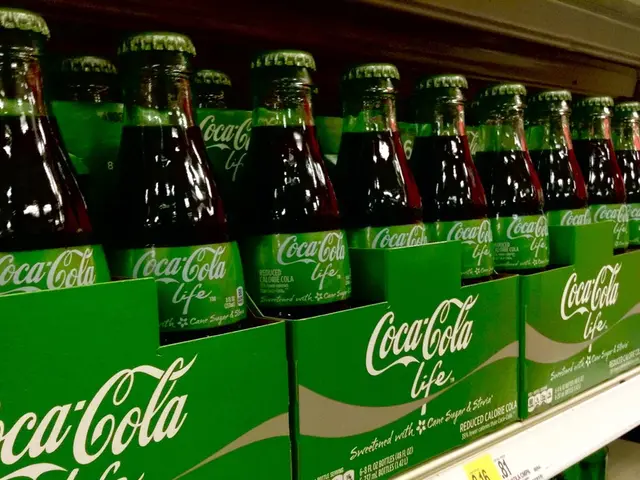Nestlé chairman advocates for tariff immunity due to expansive U.S. operations
Article:
Nestlé, the world's leading food and beverage company, views its comprehensive presence in the United States as a safeguard against potential tariff repercussions. In an interview with "Handelszeitung," Nestlé board chairman Paul Bulcke stated, "Of course, we are affected, but our extensive presence in the U.S., which entails manufacturing, imported goods, and local employment, functions as a protective barrier against external risks."
Nestlé predominantly manufactures over 90% of its products in the country where they are sold. Within the U.S., the company employs 36,000 individuals across 54 production sites. Despite its global standing, Nestlé is perceived as a domestic entity in various markets.
The company's operations in the U.S. incorporate a range of imported products, raw materials, and equipment. Although specifics regarding imported equipment are not readily available, Nestlé's U.S. operations heavily rely on imported raw materials for various products.
Coffee beans, cocoa, palm oil, soybeans, and various other ingredients are among the raw materials that Nestlé sources from abroad. These materials serve multiple purposes in Nestlé's operations, including the production of packaged foods, beverages, bolstering research and development initiatives, and maintaining supply chain efficiency.
The volatility in coffee bean prices, the quality of cocoa from specific regions, and tariff implications on ingredients like palm oil and soybeans can, respectively, impact Nestlé's pricing strategy, product offerings, and production costs. To deal with such challenges, Nestlé may have implemented strategies such as hedging and diversifying sourcing locations, similar to other companies in the industry.
Bulcke affirmed that the company often absorbs increased production costs from tariffs or, at times, passes them on to consumers as a last resort. Specific details regarding Nestlé's tariff mitigation strategies were not provided in the available information.
- The extensive presence of Nestlé in the United States, comprising manufacturing, employment, and importation of goods, not only safeguards against tariff repercussions but also aligns the company with the employment policies of the community and the business sector, particularly in the industry and finance.
- Nestlé's reliance on imported raw materials such as coffee beans, cocoa, palm oil, soybeans, and various other ingredients for its operations in the U.S. necessitates the company to carefully monitor these markets and implement strategies (like hedging and diversifying sourcing locations) to manage the volatility in prices and tariff implications, which directly impact its employment policy and business performance.








